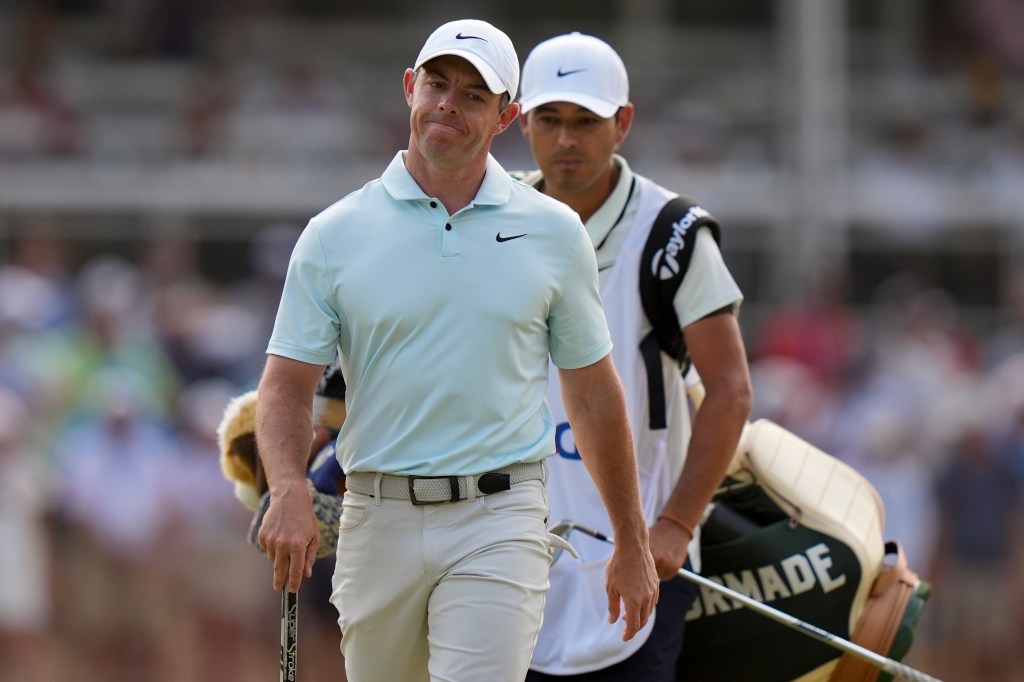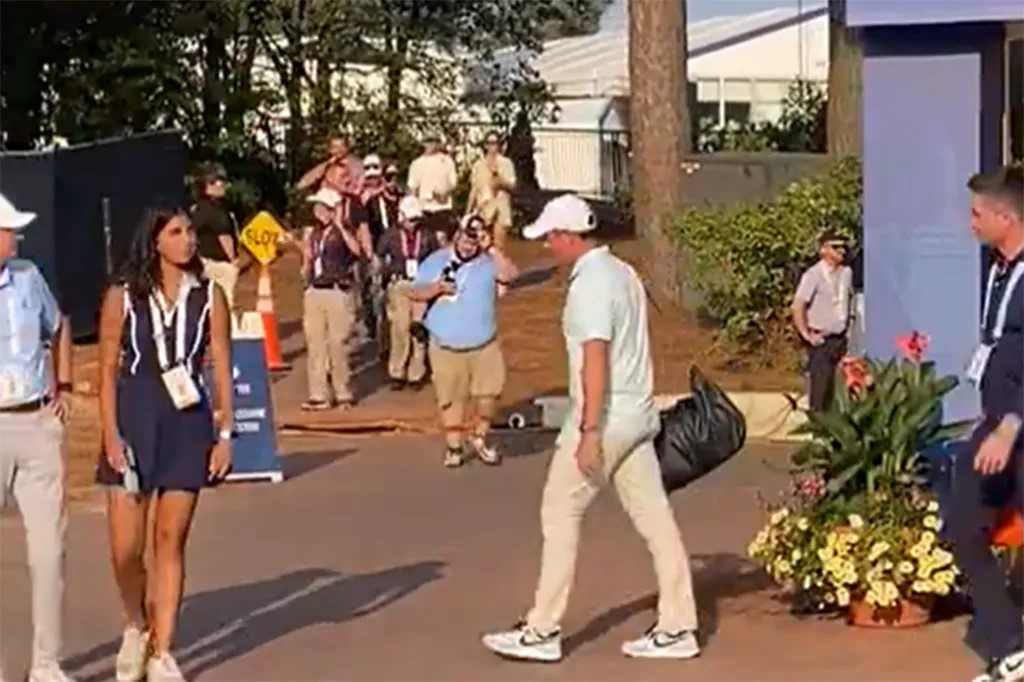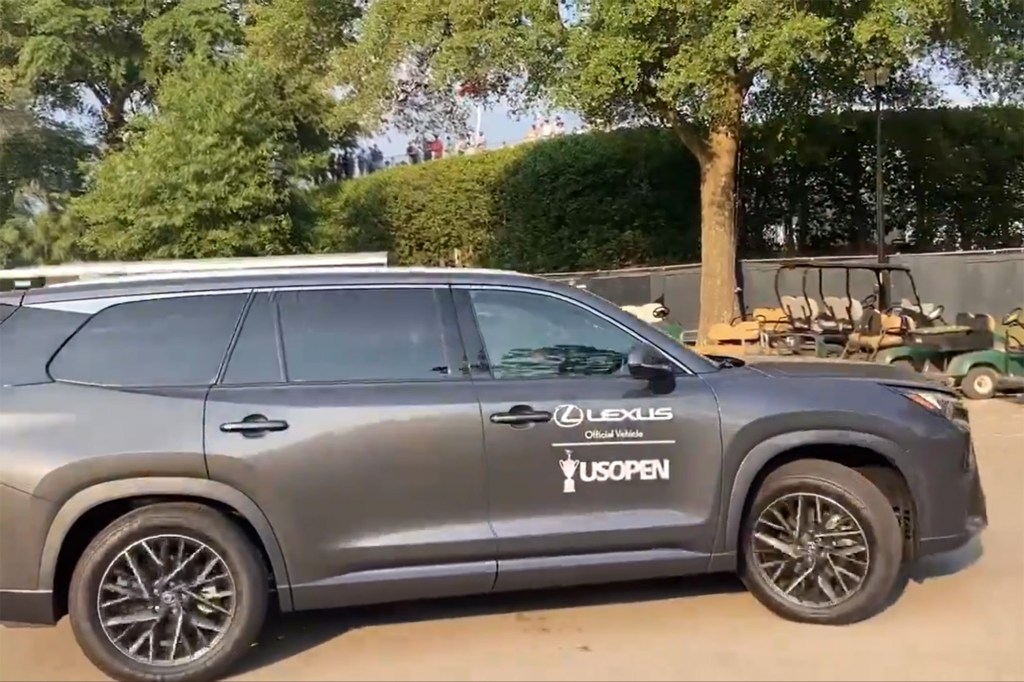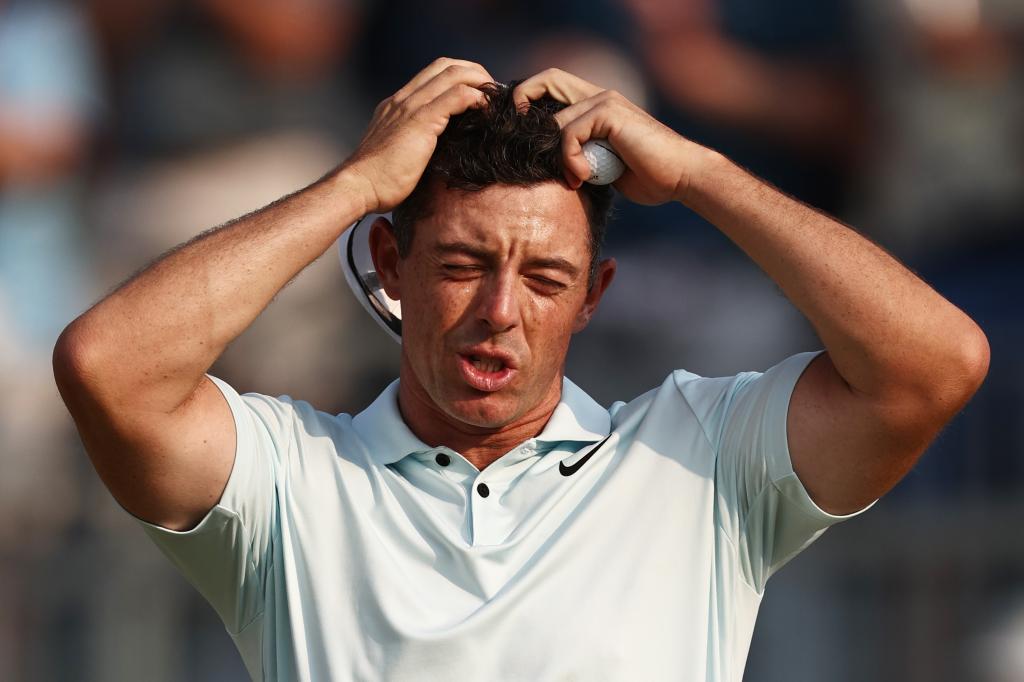Rory McIlroy compounded the mistakes he made on the 16th and 18th greens at Pinehurst No. 2 on Sunday afternoon with another mistake after he tossed his golf clubs into the trunk of his Lexus SUV courtesy car and hastily bolted from the premises.
Walking away from the most devastating loss of his career in a major championship without addressing what went wrong and/or his feelings (which were rather obvious) threatened to allow the goings-on in the fateful U.S. Open final round to fester.
McIlroy leaving the golf course after declining interview requests following his stunning one-shot loss to Bryson DeChambeau, a decision that was completely understandable given the gut-wrenching circumstances, threatened to prolong the story.
Fortunately, and with the advantage of day-after retrospect, McIlroy ended his Sunday silence on Monday by releasing a statement on X, which in part, said he was stepping away from tournament play until the Scottish Open and British Open next month.
“Yesterday was a tough day, probably the toughest I’ve had in my nearly 17 years as a professional golfer,’’ McIlroy said in his statement. “Firstly, I’d like to congratulate Bryson. He is a worthy champion and exactly what professional golf needs right now.’’
McIlroy was committed to play this week’s Traveler’s Championship in Cromwell, Conn., and it was somewhat predictable after Sunday he’s now decided to skip it. McIlroy surely wanted no part of being besieged with questions about the U.S. Open loss so soon after Sunday.
It must be made clear here that McIlroy is not only one of the most accessible star players in the sport, he’s also one of the most candid, earnest interviewees who makes the effort to provide proper perspective.
So, emotionally, I totally cut him a break for his actions at the end of the day Sunday. But practically, I believe it was a mistake, because it carries the story to another day, week or more.
Look at the nonsense that the Aaron Rodgers-Jets mandatory minicamp unnecessarily spun into last week.
At some point, Rodgers’ mystery whereabouts during his “unexcused’’ absence from the camp are going to emerge. So, why not get out in front of it from the start instead of allowing it to linger and become a week’s worth of stories and conjecture?
McIlroy’s Sunday silence only prolonged the narrative and made it out to be more than he wanted it to be.
Understandably he wasn’t thinking of these things in the immediate aftermath of missing those short putts on 16 and 18 and watching DeChambeau charge through the door he left ajar and snatch the big silver trophy. But McIlroy could have learned a thing or two from how others before him handled devastating defeat.
He could have learned from Phil Mickelson, who threw away the 2006 U.S. Open at Winged Foot, and stood before reporters minutes afterward and said, “I am such an idiot.’’
Those words of raw honesty earned Mickelson immeasurable amounts of respect and admiration.
So, too, did the grace with which Jean Van de Velde handled his shocking choke in the 1999 British Open at Carnoustie, where he leaked away a three-shot lead on the 72nd hole and lost in a playoff.
McIlroy, too, could have learned from Greg Norman, a man whom he overtly detests. The class with which Norman handled his 1996 Masters loss to Nick Faldo after holding a six-shot lead to begin the final round was remarkable.
Most important for McIlroy now, as he tries to move on from Sunday’s flatstick meltdown on the back nine, is to draw from his own experience and resiliency.
Prior to Sunday in the Sandhills of North Carolina, McIlroy’s most devastating defeat took place in the 2011 Masters, where he blew a four-shot lead with nine holes to play in the final round.
McIlroy, a younger man without the scar tissue he has today as a 35-year-old who’s searching for his first major championship victory in 10 years, handled that defeat with maturity and class, even with tears in his eyes.
More important than the way that 22-year-old McIlroy handled the immediate aftermath of that loss in an interview with Bill Macatee at Augusta was how he responded two months later — winning the 2011 U.S. Open at Congressional.
“I feel closer to winning my next major championship than I ever have,’’ McIlroy said in his statement. “The one word that I would describe my career as is resilient. I’ve shown my resilience over and over again in the last 17 years and I will again.’’
That’s exactly what McIlroy must draw on now.
Easier said than done, of course, as the baggage becomes heavier with every trip you take.
“I’m going to take a few weeks away from the game to process everything and build myself back up for my defense of the Genesis Scottish Open and The Open at Royal Troon,’’ McIlroy said in the statement. “See you in Scotland.”










